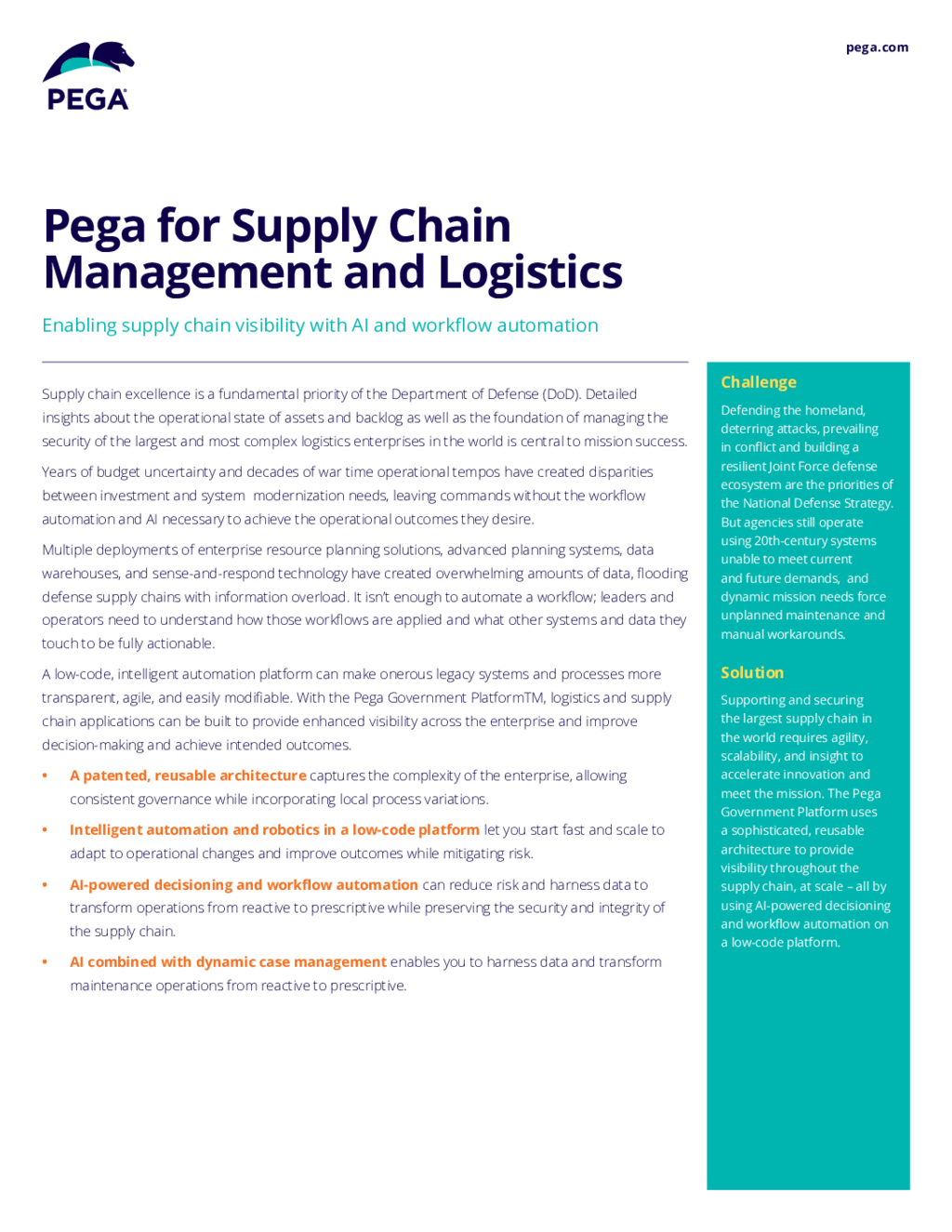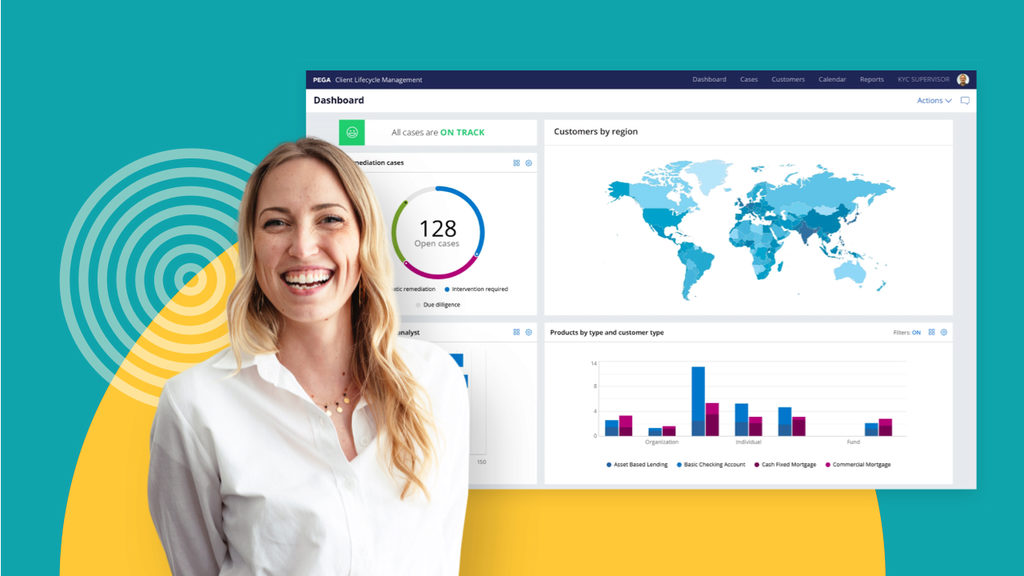
Data Sheet
Pega for Supply Chain Management and Logistics
Supporting and securing the largest supply chain in the world requires agility, scalability, and insight to accelerate innovation and meet the mission. The Pega Government Platform uses a sophisticated, reusable architecture to provide visibility throughout the supply chain, at scale – all by using AI-powered decisioning and workflow automation on a low-code platform.
Tags
Related Resources

Recommended research & insights
See what’s new, what’s next, and what’s trending right now.

Why Pega?
Uniquely powerful software isn’t the only thing that sets us apart.
